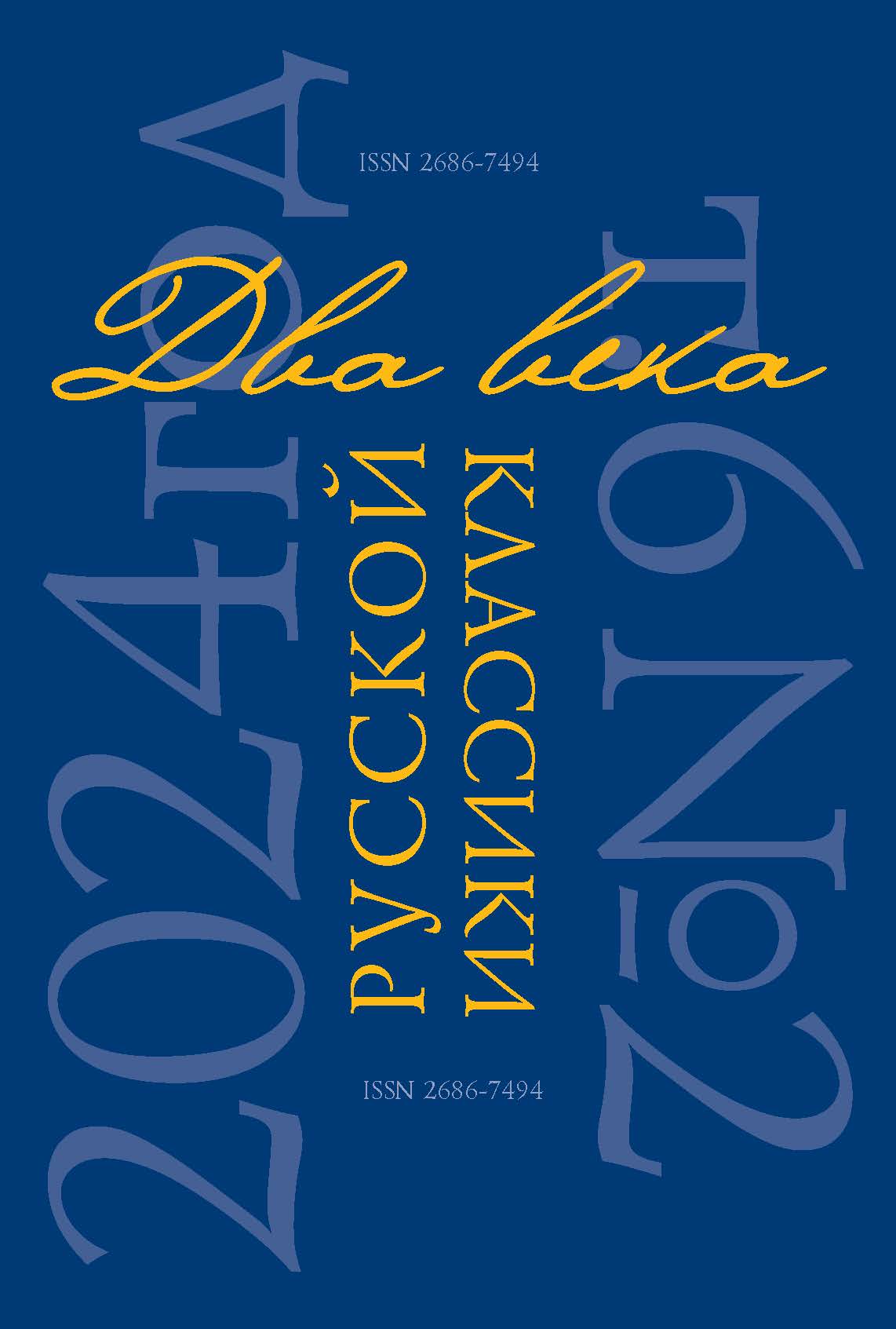Abstract: The author of the article, pointing to the definitions of the novel Eugene Onegin that are stable in scientific Pushkin studies — realistic, historical, philosophical, autobiographical and problematic — notes that the novel is full of mysticism, understanding by mysticism a belief in the existence of supernatural metaphysical forces, with which the heroes, and the author of the novel himself, are connected in a mysterious way. The article examines the reasons for Onegin’s spiritual crisis, which manifests itself in the worldview and behavior of the hero. Its most important features, named in the novel — deceit, hypocrisy, cynicism, idleness, a distorted idea of love, which is replaced by “the science of tender passion” — are considered in comparison with the texts of Holy Scripture. As a result, the author of the article comes to the conclusion that the state of the protagonist’s soul can be characterized as its “mortification” or “petrification”. “The disease, the cause of which should have been found long ago”, is connected not so much, perhaps, with life in the “pool of light” as with the loss of faith in God, “loss of oneself ” under the latent influence of demonic forces.
References
Ivanov-Razumnik, P. V. Sochineniia [Works], vol. 5. Petrograd, Tipografiia M. M. Stasiulevicha Publ., 1916. 371 p. (In Russ.)
Kozhevnikov, V. A. Izbrannoe. Stat’i, perevody, kommentarii [Selected Works. Articles, Translations, Comments]. Mosсow, St. Petersburg, Nestor-Istoriia Publ., 2017. 431 p. (In Russ.)
Lotman, Iu. M. Roman A. S. Pushkina “Evgenii Onegin”. Kommentarii. Posobie dlia uchitelia [Alexander Pushkin’s novel “Eugene Onegin”. Commentary. Teacher’s Manual]. Leningrad, Prosveshchenie Publ., 1983. 416 p. (In Russ.)
Meilakh, B. S. “Evgenii Onegin” [“Eugene Onegin”]. Pushkin. Itogi i problemy izucheniia [“Pushkin. Results and Issues of Studying”]. Moscow, Leningrad, Nauka Publ., 1966. 664 p. (In Russ.)
Nabokov, V. V. Kommentarii k romanu A. S. Pushkina “Evgenii Onegin” [Commentary on the Novel “Eugene Onegin” by Alexander Pushkin]. St. Petersburg, Iskusstvo-SPB Publ., Nabokovskii fond Publ., 1998. 928 p. (In Russ.)
Nepomniashchii, V. S. Lirika Pushkina kak dukhovnaia biografiia. Repetitsiia knigi [Pushkin’s Lyrics as a Spiritual Biography. Book Rehearsal]. Moscow, MGU Publ., 2001. 238 p. (In Russ.)









